Last updated: February 9 2018.
Best matcha tea enthusiasts know that shopping for the top brands can be a maddening experience. That’s true for several reasons; one must negotiate a few cultural barriers because all the best brands come from Japan, there is a dizzying array of choices, and one can’t really test a brand without first making a purchase (for online buying).
In case you’re in a hurry or not sure where to buy macha tea from, here are some of our favourite matcha tea brands, as of April 2017:
| Matcha Tea Brand | Packaging |
|---|---|
| Aiya Organic | 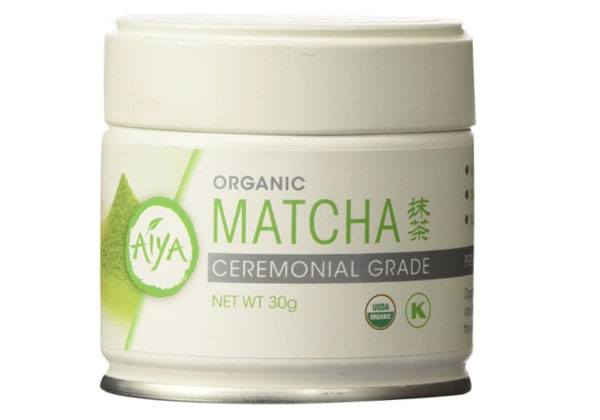 |
| Do Matcha Organic | 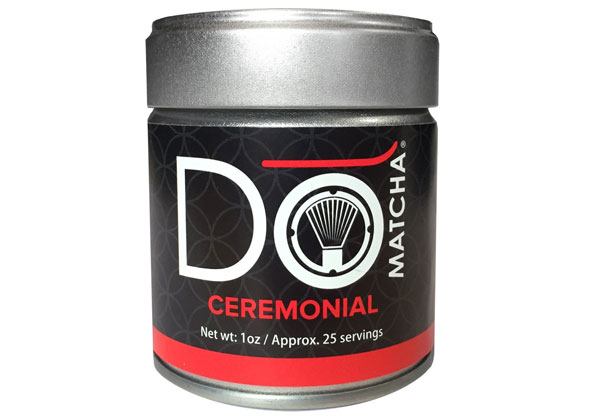 |
| Midori Spring Organic | 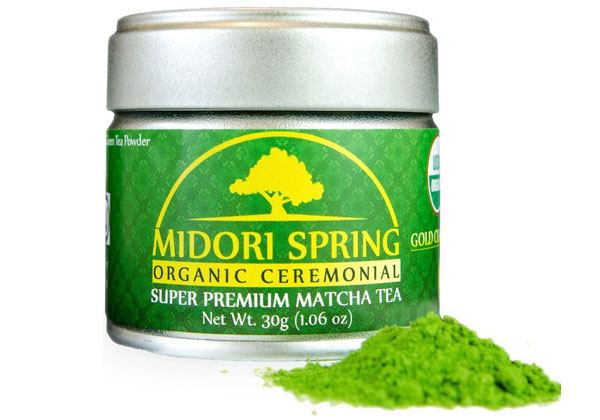 |
| Pure Matcha Organic | 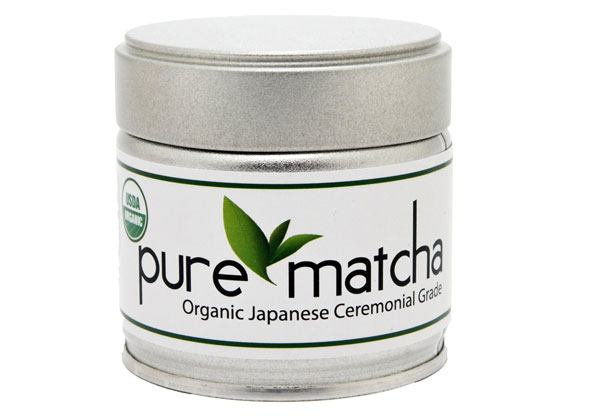 |
| Taste of Kyoto Reserve | 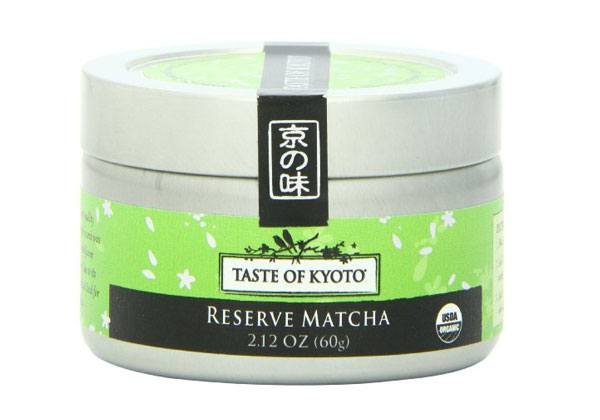 |
| Teavana Organic | 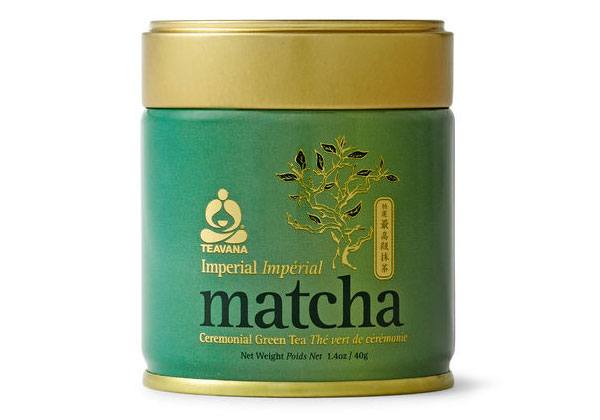 |
There are now hundreds of different matcha green tea brands on the market. We’ve spent more than 6 months on testing some of the best ones and selected here our favourite six matcha tea powders of the very best organic, Japan-sourced high grade versions that are widely available online and in specialty markets. Our comparison is more concerned with taste and overall quality than with extraneous characteristics like shipping time, price per gram, ease of ordering, and other “marketing” parameters (though smart packaging did figure into our analysis).
Known for its healthful properties, Japanese matcha tea is one of the biggest culinary successes of the past decade. Even compared to other good-for-you teas and power drinks, matcha wins the nutrition contest hands-down.
It is also quite pricey due to special growing methods and the limited places where it can be cultivated. Before spending a small fortune on tea, consumers need to know whether the top brands live up to their reputations, are worth the cost, and deliver as advertised.
Best matcha tea: comparison
In a way, comparing and critiquing high-grade tea is like rendering an opinion on fine art or music: impressionist painting isn’t necessarily “better” than cubism; nor is classical music superior to jazz. But even within the highly rarefied world of ceremonial-grade, organic matcha tea, there are differences that buyers need to know about. For the most part, a good cup of matcha tea carries a vegetal taste followed by a subtle, light sweetness that varies from product to product.
Best matcha tea: criteria and methods
Our simple comparison merely describes taste and overall quality of each brand.
Other important practical considerations are ease of mixing, aroma, freshness upon arrival, value, color, texture and honest labeling. Color and texture are accurate indicators of both freshness and quality. Bright green, powdery tea is the result of high-grade plants, healthy soil, and careful grinding. Lumpy, knobby texture usually means that unwanted moisture has crept into the tea somewhere between grinding and delivery.
For each brand, we prepared three cups: one with nothing added, one with a bit of organic sugar, and one with a small amount of organic whole milk. Surprisingly, some brands take quite well to added sugar and milk. Others don’t. (The highest quality matcha teas are extremely high in a nutrient called L-theanine, which has a natural sweetness to it. This is the reason why ceremonial matcha, as opposed to food-grade tea, tastes so much better).
Because all the tea we tested was ceremonial grade, we did not prepare any foods or Vitamix ice cream desserts with it. Perhaps we’ll do a comparison of culinary matcha at another time.
The teas are not “graded” on any kind of scale, either lettered or numeric. The six brands are all excellent products and their differences are mostly a matter of subjective opinion, rather than quality.
Each tea’s name, below, is followed by a description of our experience from arrival of the product, to drinking three cups: plain, with sugar, and with milk.
Our experience with matcha tea has covered many years and every conceivable grade of the product, from the very best ceremonial versions to bottom-of-the-barrel culinary teas from parts unknown.
We only tested organic matcha tea from Japan. There are other source countries for matcha, but the quality of the non-Japanese stuff is mediocre at best.
We have no financial stake or business relationship of any kind with any of the manufacturers of the teas tested. In fact, with one exception, we have never tried any of the brands in this test. We purchased the tea ourselves and were not given any “free samples” by any of the companies reviewed.
1. Aiya Organic Matcha Ceremonial Grade, 30 gram, air-sealed metal container
Aiya teas are grown in one of Japan’s oldest and most remote regions, Nishio, in the Aichi Prefecture. Rivers, fertile soil and clean air are the advantages for tea growers in Nishio. All their matcha teas are granite-ground and stored in a cold area until shipping.
The maker recommends using 1.5-2.0 grams per cup for best results. We used 2 grams per cup in our three tests of this product. Cost of the tin was about $20, which works out to about 66 cents per gram, or $1.32 per serving.
The Aiya tin arrived quickly and was well packaged. It was spring green and looked very fresh, but did have a tiny bit of lumping that required severe whisking in order to prepare it properly. You can smell the sweetness in this tea, which is rare for a freshly-opened tin of matcha. Its color and aroma indicate that it is certainly a quality product. Directions on the tin suggest refrigerating after opening. That’s good advice for any matcha tea, whether the package says so or not.
This brand’s reputation, the initial aroma from the just-opened can, and the color all pointed to a better quality than we experienced. While ceremonial matcha should be a tad bitter, this batch must have come from a younger set of plants. Either that or more than a slight amount of moisture leaked in between canning and shipping. Even so, the extra bitterness was a minor factor in the grand scheme of things.
The lumpiness did call for vigorous whisking, but after the tea was prepared and mixed well, it was excellent. The tiny amount of extra bitterness quickly dissolved upon swallowing and was immediately followed by a natural, sweet note that is the “esoteric” signature of all good matchas.
With one-half teaspoon of organic sugar to deflect the bitterness, it seemed perfect. The sugar did its job, went down with the tea, and the product’s natural sweetness arrived again to produce a wonderful, full vegetal-sweet tea taste.
Aiya works well with milk too. Even re-heating after adding the milk did not alter the effect. Compared with the other six teas on this list, and even with other matchas we’ve tried, this product is well worth the cost and stands proudly against any other matcha product on the market.
For whatever reason, the only downside here was whisking. The few “moisture lumps” were a challenge to dissolve; and the overall fineness of the tea powder also called for extra muscle power. Still, that is a small disadvantage and is probably an aberration. Aiya ceremonial grade organic matcha would be at the top of anyone’s list.
Suggestion: Experiment with the amount of water used in each serving, as this tea lends itself to thicker preparations. Only the very best matcha tea is able to maintain its hint of bitterness and pleasant sweetness when used in, say, a 3-ounce or even 2-ounce mixture (without decreasing the amount of powder used for a 4- or 6-ounce serving). We prepared a cup of “thick tea” (aka koicha) with the Aiya and were pleasantly surprised with the result. We mixed 2 grams of tea with 2 ounces of hot water, whisked, added nothing, and drank it. That’s very much like the way most tea masters make it for formal ceremonies. It helps to have a piece of candy on hand to complement the natural matcha flavor immediately afterward, or even to mix it with some Vitamix almond milk.
Get Aiya Organic Ceremonial Matcha
2. Do Matcha Organic Ceremonial, 1-ounce, air-sealed metal container with a small bag inside
At approximately $1 per gram, this is one of the pricier products in the segment. It arrives neatly packed in a small box and upon opening the tin, a non-bitter aroma with a very light sweetness is evident.
The tea we received was extremely green and powdery, proof that it is not only well-packed but was properly ground and is of the highest quality. It has a sweeter than usual aroma, which is quite pleasant but not always indicative of taste. Sometimes aroma is just aroma, to be appreciated for its own sake. In traditional tea ceremony, a tea’s odor, during and after preparation, is considered as important as its taste.
Each 1-ounce package yields about 25 servings of regular-strength matcha. If used only for koicha (thick tea), the tin would only make about 12 servings. The Do Matcha powder was so fine and non-lumpy that it was easy to whisk into froth. Sometimes very fine powder makes for difficult mixing, but that was not the case here. It seemed almost to dissolve into the warm water.
Do Matcha has almost no bitterness, but is smooth and clean as it hits the tongue and mouth. A strong vegetal taste that is neither bitter nor sour is unique to this brand. Its color and fresh taste probably mean that it was made from the very best of the young leaves of the tea plant. A subtle, airy, sweet aftertaste was the perfect complement to the non-bitter smoothness before swallowing.
Trying this with added sweetener and with milk seemed to somehow dull the authentic, vibrant flavor of the tea itself. A small serving of koicha (thick tea) demonstrated the same: Do Matcha needs nothing added to it, unless one really wants extra sweetness or milk. Follow a cup of Do Matcha with a small piece of dark chocolate for a unique round of culinary joy.
Get Do Matcha Organic Ceremonial
3. Midori Spring Organic Ceremonial Super Premium Matcha Tea, in a 30-gram, air-sealed tin
The price is about $1 per gram for 30 grams, which will make 15 or so servings, depending how strong you like your matcha. Like the Aiya reviewed above, Midori Spring comes in an air-sealed tin with no inner bag. While not a bright green, it does have a very fresh, grassy aroma and the powder is relatively fine, with no sign of moisture.
This tea comes from the Aichi and Kagoshima regions, two of Japan’s most fertile valleys. Kagoshima is the southernmost part of the nation, and its soil is extremely rich with volcanic ash and dense with nutrients.
Midori Spring is easy to whisk and delivers a smooth, non-bitter vegetal taste on the first swallow. There is a weak, sweet aftertaste that seems about right as a follow-up to the nutty, grassy original flavor that hits the taste buds. This tea tasted no better with sugar. In fact, even the high-grade organic sugar we used seemed to interfere with Midori Spring’s natural, light sweetness. However, just a tablespoon of milk abetted all the fine flavors of the tea.
As a thick, koicha mixture, Midori works well, but its grassy flavor becomes much more pronounced, in a good way. This is one of the few matcha teas we’ve tasted that has no bitterness at all, so it would probably be a good choice for someone new to drinking matcha tea.
All the teas in this taste test had a mild, uplifting effect from their small amount of natural caffeine. Midori Spring especially seemed to deliver a sense of warm calmness immediately after drinking. This is a good tea from which to directly experience the “uplifting relaxation and heightened attention” that Zen Buddhist monks achieve after tea ceremony. Midori, Aiya, and Do Matcha, Pure Matcha, Taste of Kyoto, and Teavana all contain slow-acting caffeine that is quite unlike the “coffee high.”
Get Midori Spring Organic Ceremonial
4. Pure Matcha Organic Japanese Ceremonial Grade, 30-gram air-sealed tin
This tea’s aroma is a bit different. It is more like spinach with a hint of sweetness rather than the slightly bitter, grassy smell of many varieties of matcha. Comparable in price-per-serving to other 30-gram tins, at slightly less than $1 per gram, Pure Matcha is a worthy competitor in the elite matcha tea market segment.
The spinach aroma translates to the same kind of taste after preparation, with the slightest bit of sweetness in its original contact with the taste buds and as an aftertaste. Its smooth, light taste is indeed vegetal; and the mild aftertaste is both sweet and spinach-like. This is one of the few matcha teas we’ve tried whose aftertaste is almost a perfect continuation of the original flavor that arrives in the mouth. That first gulp seems almost echoed in the soothing after-aroma and its lingering sensation within the throat, mouth and nose.
Pure Matcha also receives added sugar and milk with ease; and its bare flavor is not altered at all. This might be another wise choice for anyone who wants to try matcha for the first time. It whisks easily, smells “healthy” (like fresh-cut spinach), and goes down smoothly without any bitterness at all.
Making thick koicha with Pure Matcha was also a pleasant experience. The essential taste profile remained intact, the grassy spinach aroma and flavors were more pronounced, and this thicker, more traditional mixture needed no sugar. An after-drink sweet of cinnamon makes the perfect finish to a cup of regular or koicha Pure Matcha tea.
Get Pure Matcha Organic Japanese Ceremonial Grade
5. Taste of Kyoto Reserve Matcha, in 60-gram air-sealed tin and an inner bag
This tea is much more affordable than most matchas of similar grades. At about 78 cents per gram, it is easily the best value of the half-dozen we tested. With a grassy and sweet aroma in the freshly-opened tin, the tea powder is vividly green and finely ground. Simple to mix with or without a whisk, Taste of Kyoto is faintly bitter, smells sweet and crisp, and carries a uniquely sweet aftertaste.
If it possible for a tea to be intensely smooth, this is the one. There is a slight downside that we didn’t experience with other high-grade matchas: Taste of Kyoto seems to settle to the bottom of the bowl rather quickly after whisking. So, you have to re-whisk or drink it quickly. Other than that, it held up to additional sugar and milk well, accepting the extra tastes and somehow incorporating them into its smoothness.
An ounce of organic milk was the perfect addition to the regular-strength Taste of Kyoto. The brand also worked well as a thick koicha, with just a hint of bitterness and the same sweet aftertaste.
The mild caffeine effect was soothing and wakeful at the same time. Compared to the other teas tested, Taste of Kyoto’s “lift” was both physical and emotional. It prompts more focused concentration and what might be termed “gentle alertness.”
The aroma is also a big advantage of Taste of Kyoto. It has a strong vegetal-sweet-spinach aroma that hangs in the air for a while, and can be detected within the throat and sinuses for at least 10 minutes after drinking. It’s hard to define, but there were so many little things about this tea that made it stand out from the other five, plus the fact that it is, relatively speaking, a bargain makes for a winning combination.
Get Taste of Kyoto Reserve Matcha
6. Teavana Organic Imperial Matcha, in a 40-gram, air-sealed tin
The least expensive tea on this list (at 62 cents per gram) is somewhat difficult to order. It is usually not available at the big online stores and must be ordered from the manufacturer directly. As a bonus for that slight inconvenience, the price is right, at approximately $25 for the 40-ounce container, which makes between 20 and 25 cups.
The aroma is very good but not outstanding. It smells earthy and grassy, with a slightly vegetal aroma mixed in. The color is spring green and the powder is so fine that it almost pops out of the can in a mist. For the price, Teavana’s Imperial Matcha is a good buy.
The initial taste sensation is creamy, slightly grassy and smooth, with no bitterness. The aftertaste is mild as well, and only vaguely sweet. There is no “acquired taste” learning curve with Teavana. The flavors are not subtle or hidden, but pretty obvious from the first sip.
Mixing Teavana Organic Imperial is simple. It froths up quickly and does not resettle much at all for a few minutes. The tea readily accepts added sugar; the half-teaspoon we added was a delight. Even milk was a nice addition that did not dull the full, smooth, vegetal taste and flavorful aftertaste.
As matchas go, this one does well all around. The price is right and it would be a good “starter tea” for anyone wanting to explore matcha. Its versatility with additives like sugar and milk make for a solid product that tastes great and won’t break the bank.
One small negative factor for Teavana is that it does not work well as a thick koicha. Perhaps the batch we got was not optimal, but to be fair to the other teas on this list, we must point out that thick tea is not this product’s strong point.
The uplifting effect of the caffeine in Teavana is a plus. The effect was quite mild but lasted for several hours, allowing for better concentration and a generalized, keener alertness. For price and taste alone, this would be an ideal tea for a first-time matcha taster. While Teavana Organic Imperial Matcha is not the standout of the six we tested, it is a high-quality matcha tea and offers all the advantages of a top-notch product in its field.
Get Teavana Organic Imperial Matcha
New to Matcha?
Those new to the world of matcha tea should keep in mind that, much like fine wine, matcha tea takes a bit of getting used to. What might taste bitter and slightly acidic the first time around will later show itself to have many layers of subtle flavour, aftertaste and aroma.
It should also be kept in mind that there is a huge amount of variation within the spectrum of matcha teas, especially between the ceremonial and culinary grades. A number of sellers have begun offering a mid-grade version, which complicates the picture. For those new to tea, it is smart to buy the smallest possible amount of very high-grade product.
There is of course the danger of becoming spoiled on the best, but it’s also a good way to discover the heights to which matcha tea can ascend. Later, after developing a knowledge base of matcha and how it tastes, opt for one of the mid-level brands or one of the non-expensive ceremonial grades.
It’s also a good idea to experiment with a few of the mid-grade matcha offerings and “sample packs” at first. Many tea makers sell variety kits that are specifically created for those new to matcha. We hope the above comparison has been of help to the many worldwide fans of organic matcha tea, and look forward to hearing comments and suggestions from readers.

34 Comments